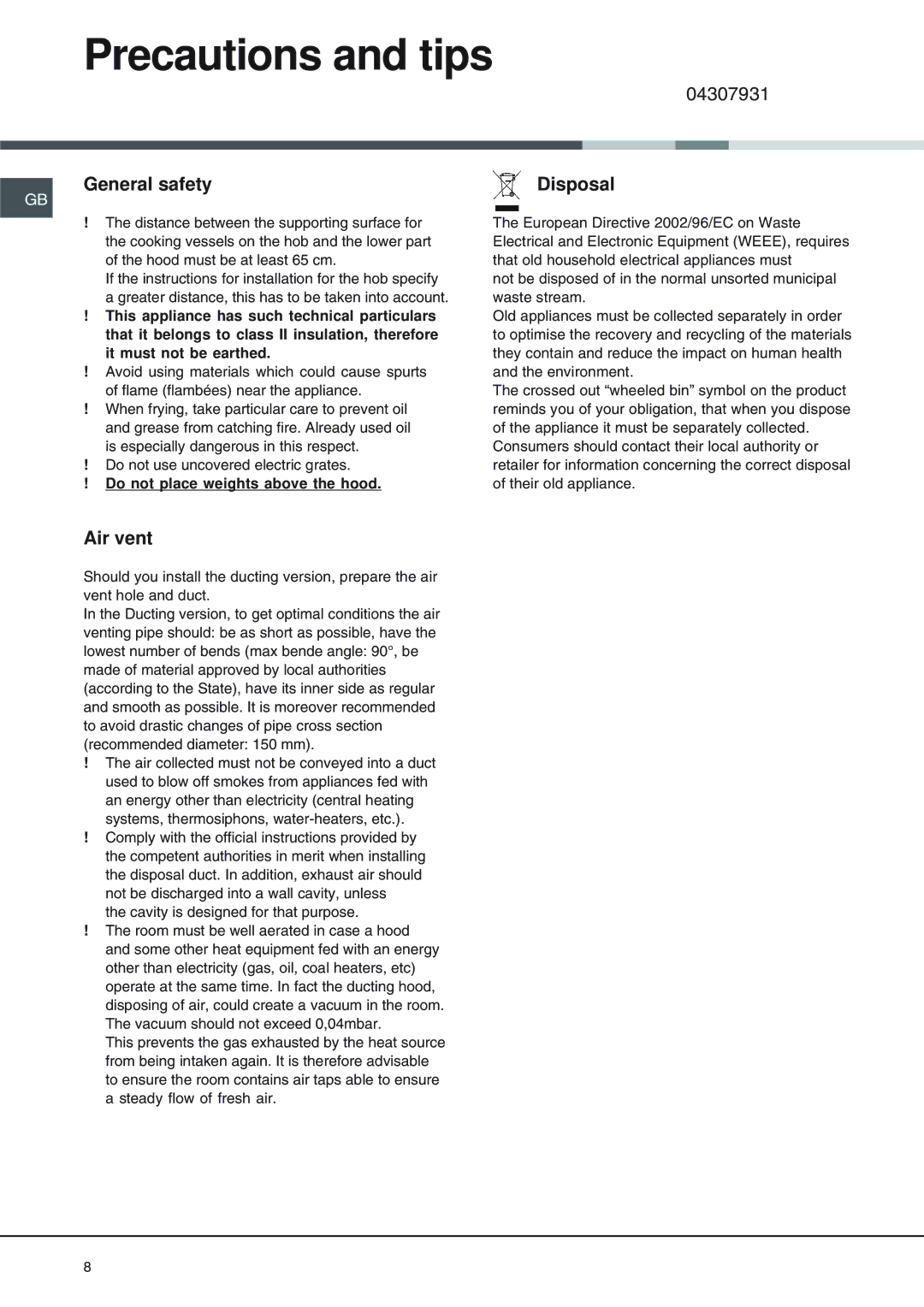
Precautions and tips
04307931
General safety
GB
!The distance between the supporting surface for the cooking vessels on the hob and the lower part of the hood must be at least 65 cm.
If the instructions for installation for the hob specify a greater distance, this has to be taken into account.
!This appliance has such technical particulars that it belongs to class II insulation, therefore it must not be earthed.
!Avoid using materials which could cause spurts of flame (flambées) near the appliance.
!When frying, take particular care to prevent oil and grease from catching fire. Already used oil is especially dangerous in this respect.
!Do not use uncovered electric grates.
!Do not place weights above the hood.
Disposal
The European Directive 2002/96/EC on Waste Electrical and Electronic Equipment (WEEE), requires that old household electrical appliances must
not be disposed of in the normal unsorted municipal waste stream.
Old appliances must be collected separately in order to optimise the recovery and recycling of the materials they contain and reduce the impact on human health and the environment.
The crossed out “wheeled bin” symbol on the product reminds you of your obligation, that when you dispose of the appliance it must be separately collected.
Consumers should contact their local authority or retailer for information concerning the correct disposal of their old appliance.
Air vent
Should you install the ducting version, prepare the air vent hole and duct.
In the Ducting version, to get optimal conditions the air venting pipe should: be as short as possible, have the lowest number of bends (max bende angle: 90°, be made of material approved by local authorities (according to the State), have its inner side as regular and smooth as possible. It is moreover recommended to avoid drastic changes of pipe cross section (recommended diameter: 150 mm).
!The air collected must not be conveyed into a duct used to blow off smokes from appliances fed with an energy other than electricity (central heating systems, thermosiphons,
!Comply with the official instructions provided by the competent authorities in merit when installing the disposal duct. In addition, exhaust air should not be discharged into a wall cavity, unless
the cavity is designed for that purpose.
!The room must be well aerated in case a hood and some other heat equipment fed with an energy other than electricity (gas, oil, coal heaters, etc) operate at the same time. In fact the ducting hood, disposing of air, could create a vacuum in the room. The vacuum should not exceed 0,04mbar.
This prevents the gas exhausted by the heat source from being intaken again. It is therefore advisable to ensure the room contains air taps able to ensure a steady flow of fresh air.
8
